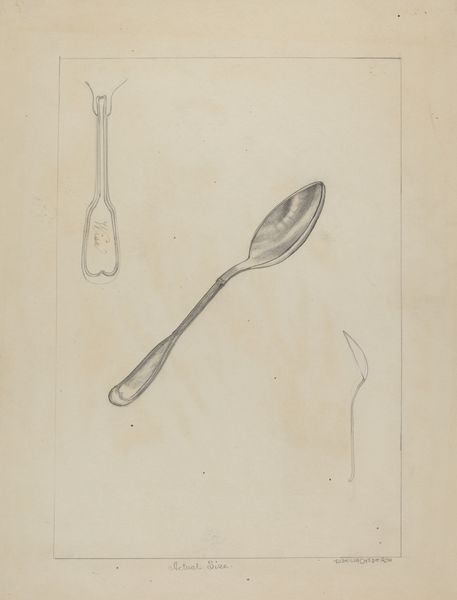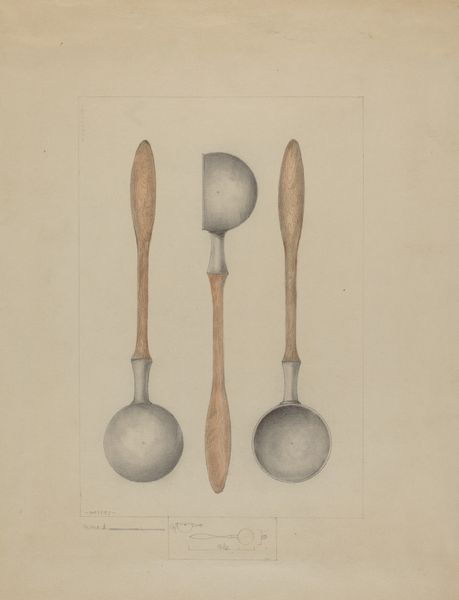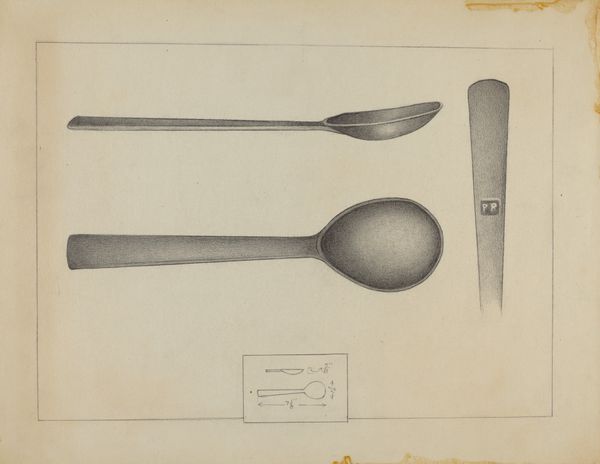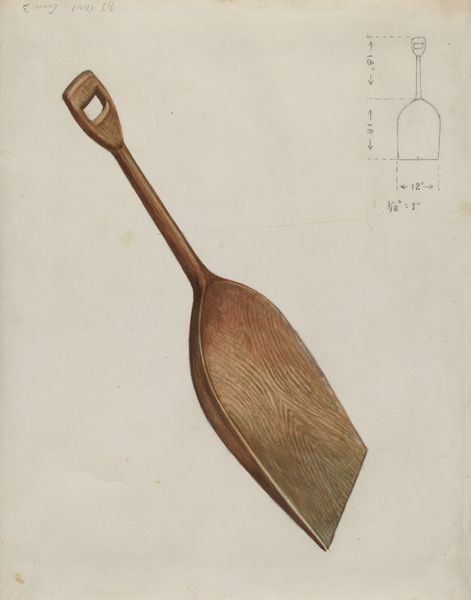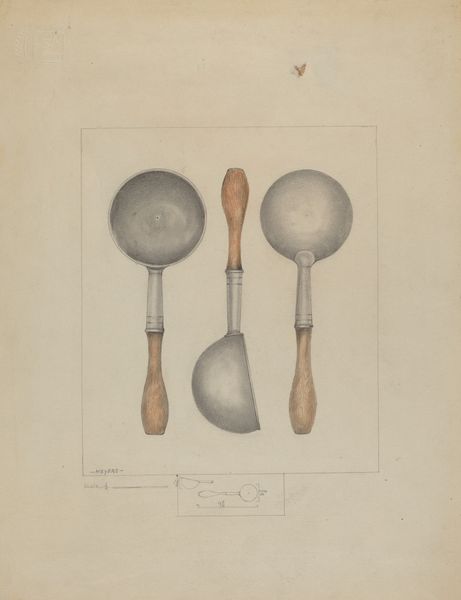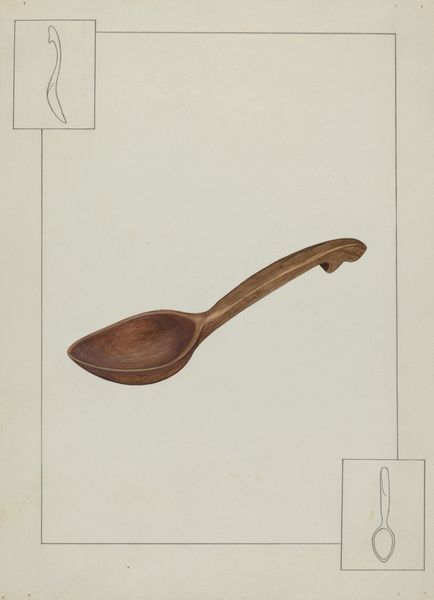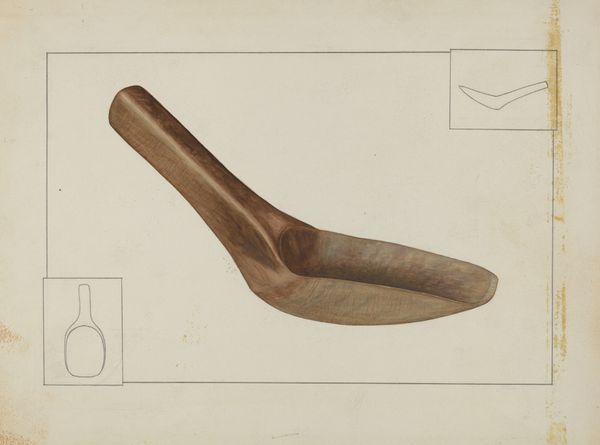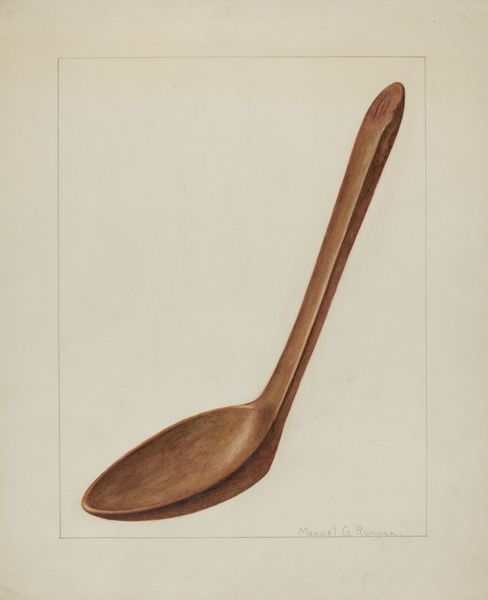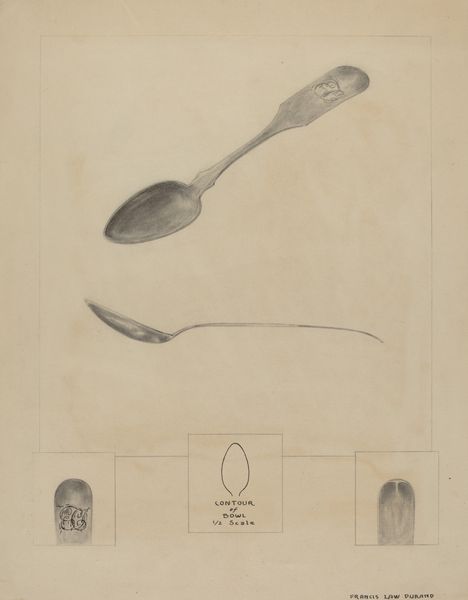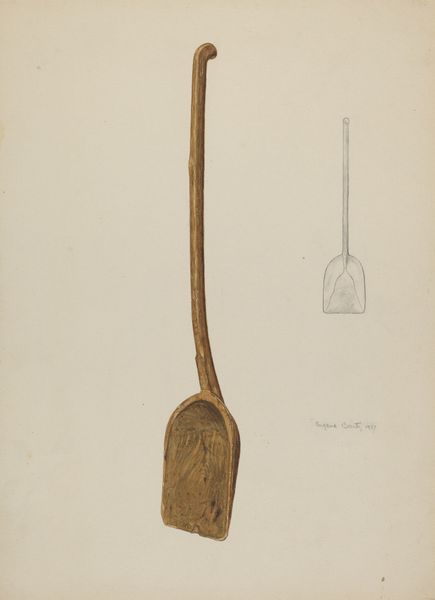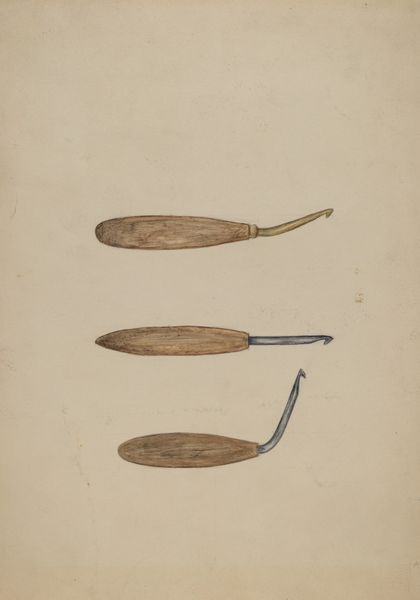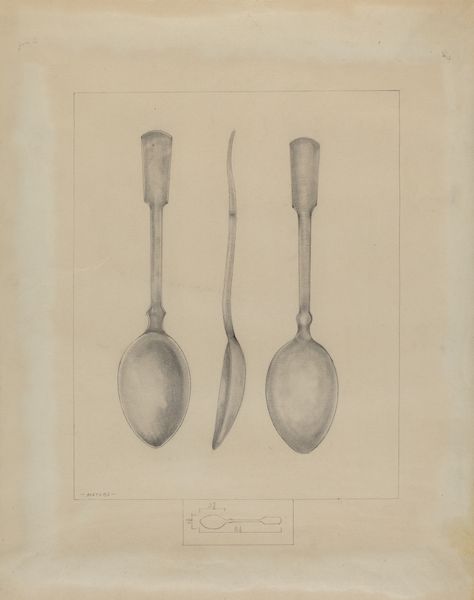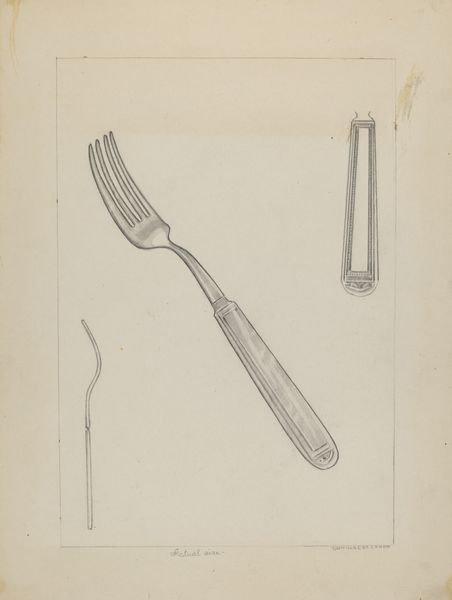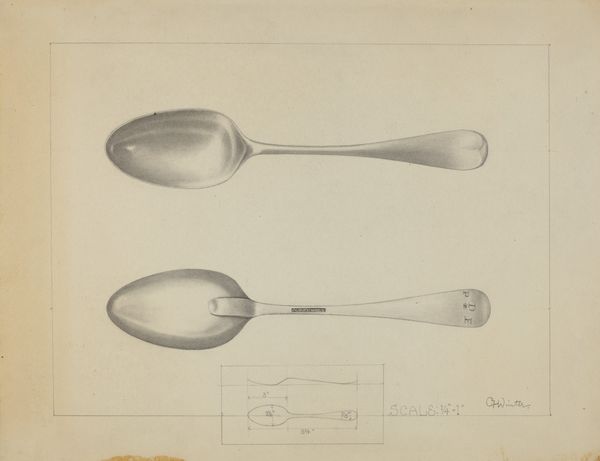
drawing, coloured-pencil
#
pencil drawn
#
drawing
#
coloured-pencil
#
pencil drawing
#
geometric
Dimensions: overall: 29.5 x 21.9 cm (11 5/8 x 8 5/8 in.) Original IAD Object: 7 1/2" long; 2" wide
Copyright: National Gallery of Art: CC0 1.0
Editor: Here we have Carl Keksi's "Spoon" from around 1936, rendered in what appears to be colored pencil. I’m immediately struck by its precision, almost like a technical drawing, but the subject matter is so humble. What is your interpretation of this work? Curator: It’s fascinating how Keksi elevates a common object like a spoon, isn't it? Considering the time period, the 1930s, it makes me think about the social context. What role did functional design play in society during a period marked by both economic hardship and burgeoning industrialism? Were there government initiatives promoting craftsmanship, perhaps even instructing unemployed populations, that influenced Keksi’s work and vision? Editor: That's interesting. So, it's less about the individual spoon and more about the cultural value placed on functionality? Curator: Precisely! Notice also the geometric elements and accompanying sketches. This suggests a deliberate examination of form and utility, possibly influenced by movements like Bauhaus which emphasized functionality and social impact through art. Perhaps Keksi aimed to bridge fine art with everyday life, giving dignity to labor and handcrafted objects. Editor: So, it’s not just a spoon, but a statement about society's relationship with utility and craftsmanship? The very act of drawing it gives value to the mundane? Curator: Exactly! The spoon becomes symbolic, a vehicle for exploring broader cultural themes. And even, potentially, a critique of mass production if Keksi felt a need to illustrate craft and unique, human creativity! How do you see the artist’s positioning of the work, the floating views and clean style? Editor: The clarity, with a nod to industrialism. And seeing something so humble so beautifully documented… food for thought, for sure. Thanks for opening my eyes! Curator: Indeed, art helps us reflect and find value in the simplest things, and a deeper historical understanding allows us to draw insight into our current lives, too.
Comments
No comments
Be the first to comment and join the conversation on the ultimate creative platform.
